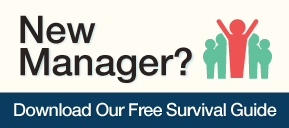Does your resume read like an inventory of trite expressions and overused phrases? Here are some clichés you should avoid like the plague.
So you’re beefing up the old resume – perhaps by converting it from chronological to functional format – when suddenly, you’re plagued by the nagging sensation that everything you’re writing sounds hollow and trite. As you peruse its contents, you can’t help but notice that every page is riddled with incomprehensible accounting jargon and meaningless buzzwords.
If you can spot the clichés, then so can an employer. And you don’t want to be noticed for being unnoticeable. As any hiring manager will tell you, there’s nothing more disheartening than having to pore through a dozen resumes that all read identically to one another, with the same tired commonplaces, and that say nothing unique or of real substance about the candidates, their ambitions, or their past work experience. After all, it’s hard to stand out in a chorus that’s reading from the same songsheet (and yes, that’s probably a cliché, too).
Steering clear of hackneyed language on your resume will help you distinguish yourself from the masses and give potential employers a better idea of the kind of candidate you really are. But what counts as a cliché? To help you find your own voice, we’ve put together a list of some all-too common catchphrases you should avoid.
“Strong”
Applicants are constantly using the qualifier “strong” to describe their various skills and abilities. Case in point: “strong team player,” “strong leader,” “strong organizational skills.” Sound familiar? It will to employers.
The problem is that when you and thousands of others depict your abilities as “strong” in this way, the word is quickly emptied of all meaning. “Strong,” after all, only makes sense in relation to “weak.” But if everyone is strong, no one is weak – which, in turn, means no one is really strong.
…you don’t want to be noticed for being unnoticeable.
Rather than settling for “strong,” choose a more concrete or specific adjective that conveys the degree of complexity with which you performed a task, or the amount of time you did it for. For example, “I have strong reporting skills” can become “I have 9+ years of experience in managing complex transactions.” Similarly, “strong Excel skills” – which are critical for Excel-erating your accounting career – can be replaced with “5+ years of experience in building complex models with Excel.”
Feel-good platitudes
Candidates often pepper their resumes with overused compound terms, like “a great self-starter,” “a fantastic people manager,” and “an excellent team player.” Because these terms fail to be sufficiently specific or outcome-oriented, many hiring managers will simply gloss over them.
Instead, opt for sentences that express what you delivered in past roles, what finance or accounting skills you used to get the job done, and how long it took to achieve results. Rather than describing yourself as a “fantastic people manager,” describe the people you managed, and the work you oversaw from them.
Trendy buzzwords
These days, everything is “dynamic,” “engaging,” and “innovative.” While there’s nothing inherently wrong with these words, their common currency in professional circles and the business press means you should probably cool it a bit on their usage in your resume. Try limiting yourself to just one of them. If your resume is sprinkled copiously with references to how “dynamic” and “proactive” you are, it will sound like you’re trying too hard.
After all, it’s hard to stand out in a chorus that’s reading from the same songsheet (and yes, that’s probably a cliché, too).
Your responsibilities (as opposed to your results)
Another big mistake people make on their resumes is referring extensively to their past finance job responsibilities – the tasks they were required to perform in previous positions – without explaining what they actually delivered in these roles. For example: “I was a general accountant at X company and was responsible for overseeing month-end close, analyzing financial reports, and preparing profit and loss statements.”
Seems okay, right? No inaccuracies or embellishments, no buzzwords or banalities. But compare it with the following: “As a general accountant for five years at X company, I streamlined the month-end close process, delivering them for nine entities across three different geographies in a tight deadline of five days.” See the difference? The first example is a bland and generic summary that you could have pulled right from an official accounting job description. The second, by contrast, describes how you mastered your role and made it your own; it explains what you uniquely contributed to it, i.e., the value and results only you could have produced. The first-person “I” in the first description could be any candidate under the sun; in the second, it could only be you.
Writing or revising a resume can be an unpleasant, not to mention highly delicate, task. On the one hand, you have limited space in which to highlight your strengths and past experiences; on the other hand, you don’t want to be too broad or specific, wordy or terse. Hacking away at all the meaningless clichés that will tarnish your resume can increase your chances of distinguishing yourself. We know they’re out there, so find them and demolish them. And don’t be afraid to be ruthless!
Let us know what you think! At Clarity Recruitment, we’re always interested in hearing from accounting and finance professionals like yourselves, who are ready for new, exciting opportunities that can take their careers to the next level. And be sure to follow us on Twitter (@clarityrecruits) and connect with us on Facebook for more great tips and advice!


